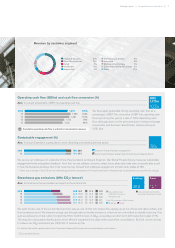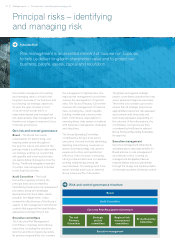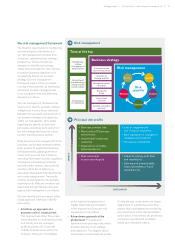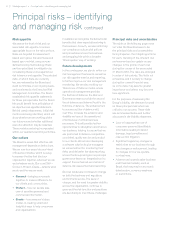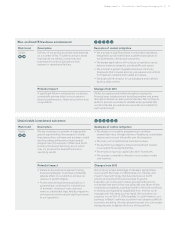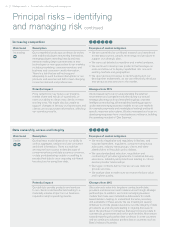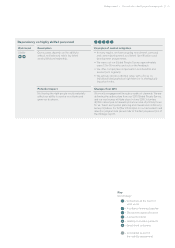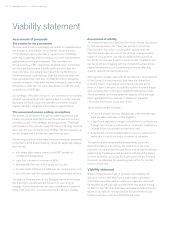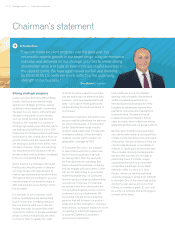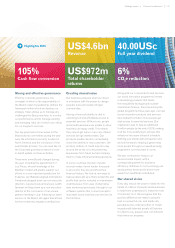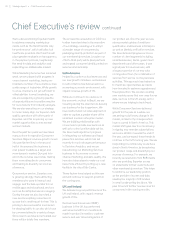Experian 2016 Annual Report Download - page 20
Download and view the complete annual report
Please find page 20 of the 2016 Experian annual report below. You can navigate through the pages in the report by either clicking on the pages listed below, or by using the keyword search tool below to find specific information within the annual report.
18
Adverse and unpredictable financial
markets or fiscal developments 3 4 5 V
Risk trend Description Examples of control mitigation
Increasing We operate globally and, as such, results could
be affected by global or regional changes in
fiscal or monetary policies:
• A substantial change in the USA, UK
or Brazil credit markets could reduce
our financial performance and growth
potential in those countries.
• We present our financial statements in US
dollars. However, we transact business in
a number of currencies. Changes in other
currencies relative to the US dollar could
impact our financial results.
• A substantial rise in USA, EU or UK
interest rates could increase our future
cost of borrowings.
• We are subject to complex and evolving
tax laws and interpretations, which may be
subject to significant change. These changes
may lead to increased effective tax rates in the
future. Uncertainty in the application of these
laws may also result in different outcomes
from the amounts provided.
• We have a diverse portfolio by geography, product, sector
and client.
• We provide counter-cyclical products and services.
• We convert cash balances which accumulate in foreign
currencies into US dollars.
• We retain internal and external tax professionals, who
regularly monitor developments in international tax and
assess the impact of changes and differing outcomes.
Potential impact Changes from 2015
• The USA, UK and Brazil in aggregate
contribute 88% of revenue. A reduction in
one or more of these consumer and business
credit services markets could impact revenue
and Total EBIT.
• We benefit from the strengthening of
currencies relative to the US dollar and
are adversely affected by the weakening of
currencies relative to it.
• We have US$3,120m in outstanding debt
denominated principally in US dollars, sterling
and euros. As this debt matures, we may need
to replace it with borrowings at higher rates.
• Earnings could be reduced and tax
payments increased as a result of settlement
of historical tax positions or increases in
our effective tax rates.
A number of currencies, including the Brazilian real and
Colombian peso, weakened against the US dollar during the
year. Revenue growth has been impacted by 9% and Total
EBIT by 11% as a result of weakness in these currencies
compared to the US dollar.
A number of countries and bodies continue to develop tax laws
and regulations. In addition, the Organisation for Economic
Co-operation and Development G20 Base Erosion and Profit
Shifting Project continues to gain momentum. Countries may
amend legislation in respect of international tax matters. In
addition the application of existing tax laws is changing and this
may impact the settlement of historical tax filings.
Strategic report •
Principal risks – identifying
and managing risk continued
Principal risks – identifying and managing risk





